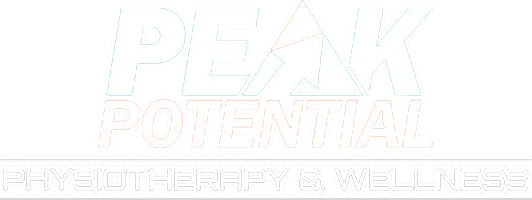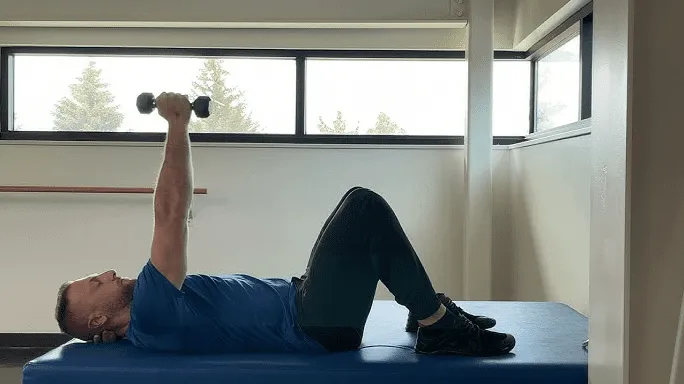Shoulder pain, stiffness, or a nagging sense that something just isn’t right when you lift your arms? You’re not alone. Whether you’re recovering from an injury, battling poor posture, or simply trying to build strength, understanding how your shoulder works—and how to properly support it—can make a massive difference.
One exercise that consistently comes up in physiotherapy and sports rehab clinics is the serratus punch. But what are serratus punches, and why are they recommended so often? More importantly, how do you know if you’re doing them correctly—and are they enough on their own?
In this post, we’ll break down the science behind serratus punches, explain when and how they should be used, and show you how Peak Potential Physiotherapy & Wellness can help guide your shoulder recovery journey.
Understanding the Serratus Anterior and Shoulder Mechanics
To understand serratus punches, you first need to know a bit about the serratus anterior muscle. This muscle sits on the side of your rib cage and attaches to the scapula (shoulder blade). Its main job is to keep the scapula snug against your ribcage while helping it move properly during arm elevation.
When the serratus anterior is weak or underactive, it often leads to a condition known as scapular winging, where the shoulder blade protrudes awkwardly from the back. This can result in poor biomechanics, shoulder pain, and even nerve impingement.
Strong serratus anterior function is essential for:
-
Stabilizing the shoulder joint
-
Improving overhead mobility
-
Reducing risk of rotator cuff injuries
-
Supporting posture and shoulder blade control
That’s where serratus punches come in.
Common Causes of Shoulder Dysfunction That Serratus Punches Address
Serratus punches are frequently used in physiotherapy settings because they correct a wide range of shoulder dysfunctions caused by:
1. Injuries
-
Rotator cuff strains or tears
-
Shoulder impingement syndrome
-
Labral injuries
-
Overuse from sports or weightlifting
2. Structural Issues
-
Scapular dyskinesis (abnormal shoulder blade motion)
-
Winged scapula
-
Muscle imbalance between pecs, lats, and scapular stabilizers
3. Lifestyle Factors
-
Prolonged sitting or poor posture
-
Sedentary lifestyle weakening the posterior chain
-
Desk work or tech neck that leads to forward-rolled shoulders
4. Nerve Conditions
-
Long thoracic nerve palsy (causing serratus anterior weakness)
-
Thoracic outlet syndrome
-
Cervical spine nerve root issues
At Peak Potential Physiotherapy & Wellness, we see these issues daily—and serratus punches are often a part of the personalized treatment plans we prescribe.
Diagnosis – How to Know If You Need Serratus Punches
You might be wondering: How do I know if I need to do serratus punches?
Here’s a quick checklist:
-
Do your shoulder blades stick out or feel unstable when doing pushups or lifting your arms overhead?
-
Do you have pain in your shoulder when reaching, lifting, or doing bench press-type movements?
-
Has your physiotherapist mentioned scapular stability or rotator cuff weakness?
While self-assessment can help, it’s important to get a proper functional evaluation from a trained physiotherapist. At Peak Potential, our assessment process includes:
-
Postural screening
-
Scapular motion tests
-
Strength and mobility tests
-
In some cases, ultrasound or imaging referrals (if needed)
Red flags that require professional help:
-
Sharp, persistent shoulder pain
-
Numbness or tingling in the arm or fingers
-
Limited range of motion
-
History of shoulder dislocation or trauma
Treatment Options – How Serratus Punches Fit Into Rehab
Serratus punches are just one tool in a full rehabilitation toolkit. While powerful, they’re not a cure-all. Here’s how we typically use them at Peak Potential Physiotherapy & Wellness:
Home Exercises
-
Wall slides with serratus activation
-
Supine serratus punches with a resistance band
-
Foam roller wall presses
-
Shoulder flexion with light dumbbells
In-Clinic Physiotherapy
-
Manual therapy for surrounding tight muscles (like pec minor or upper traps)
-
Neuromuscular retraining for scapular control
-
Dry needling or cupping (if indicated)
-
Electrical stimulation to activate underused muscles
Advanced Interventions
-
Post-surgical rehab for rotator cuff or shoulder stabilization
-
Sport-specific rehab for swimmers, climbers, or baseball players
-
Integrating with upper-body strength programs once the foundation is rebuilt
Each treatment plan is customized—no two shoulders are the same.
Prevention Tips – How to Maintain Shoulder Health Long-Term
The best way to prevent shoulder dysfunction is to keep the entire shoulder complex strong and mobile. A few foundational principles we teach every client include:
-
Train your serratus anterior, lower traps, and rotator cuff regularly
-
Avoid overemphasizing the chest and front deltoid in your workouts
-
Incorporate mobility work for your thoracic spine and shoulders
-
Use good posture during all seated activities and screen time
-
Warm up before workouts with activation drills (like wall angels or band pull-aparts)
One of our favorite preventative routines? Supersetting serratus punches with scapular retractions or plank plus movements. This builds both stability and control.
Why Expert Help Matters – And Where to Find It
Shoulder rehab isn’t a one-size-fits-all process. Improper execution of serratus punches can actually lead to more problems—especially if you’re unknowingly compensating with other muscles.
At Peak Potential Physiotherapy & Wellness, our team of licensed therapists creates customized rehab programs that incorporate serratus punches when appropriate—and ensures you’re doing them right.
We help clients overcome shoulder pain, restore proper mechanics, and get back to doing what they love—without fear of reinjury.
Ready to Take the First Step Toward Shoulder Health?
Whether you’re struggling with scapular winging, recovering from an injury, or just want to improve shoulder mechanics, serratus punches could be the missing link in your recovery—and we’re here to guide you through every step.
Book a consultation today at Peak Potential Physiotherapy & Wellness and let our expert team help you restore strength, stability, and confidence in your shoulders.
Don’t wait until minor discomfort becomes a major issue. Your shoulder health is worth it. Contact us today!


